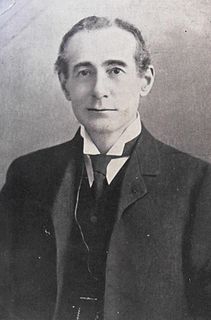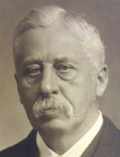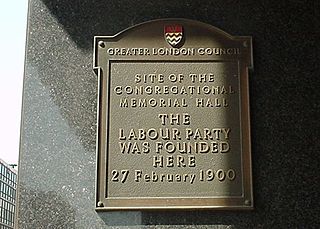
Sir Cuthbert Morley Headlam, 1st Baronet, was a British Conservative politician.
The Darlington by-election, 1926 was a by-election held on 17 February 1926 for the British House of Commons constituency of Darlington in County Durham.
The Rossendale by-election, 1904 was a parliamentary by-election held for the British House of Commons constituency of Rossendale in Lancashire on 15 March 1904.
The Saffron Walden by-election, 1901 was a by-election held on 31 May 1901 for the British House of Commons constituency of Saffron Walden in Essex.
The Cleveland by-election, 1902 was a parliamentary by-election held for the House of Commons constituency of Cleveland in the North Riding of Yorkshire on 5 November 1902.
The Rochester by-election, 1903 was a parliamentary by-election held in England in September 1903 for the House of Commons constituency of Rochester in Kent.
The Barnsley by-election, 1897, was a by-election held on 28 October 1897 for the House of Commons of the United Kingdom. It was notable for its role in the development of the Independent Labour Party.
The Batley and Morley by-election, 1939 was a parliamentary by-election held in the United Kingdom on 9 March 1939 for the House of Commons constituency of Batley and Morley in the West Riding of Yorkshire.
The Houghton-le-Spring by-election was a Parliamentary by-election. It returned one Member of Parliament to the House of Commons of the United Kingdom, elected by the first past the post voting system.
The Midlothian by-election was a Parliamentary by-election. It returned one Member of Parliament to the House of Commons of the United Kingdom, elected by the first past the post voting system.

Sir Lewis William Molesworth Bt. was an English landowner from Cornwall and Liberal Unionist Party politician.

The Crewe by-election was a Parliamentary by-election. It returned one Member of Parliament to the House of Commons of the United Kingdom, elected by the first past the post voting system.
The Chelmsford by-election was a Parliamentary by-election. It returned one Member of Parliament to the House of Commons of the United Kingdom, elected by the first past the post voting system.
The Newcastle-upon-Tyne by-election was a Parliamentary by-election. It returned two Members of Parliament to the House of Commons of the United Kingdom, elected by the first past the post voting system.
The Norwich by-election was a Parliamentary by-election. It returned two Members of Parliament to the House of Commons of the United Kingdom, elected by the first past the post voting system.

The Camborne by-election, 1903 was a by-election held on 8 April 1903 for the British House of Commons constituency of Camborne in Cornwall.
The Gateshead by-election was a Parliamentary by-election. It returned one Member of Parliament to the House of Commons of the United Kingdom, elected by the first past the post voting system.














